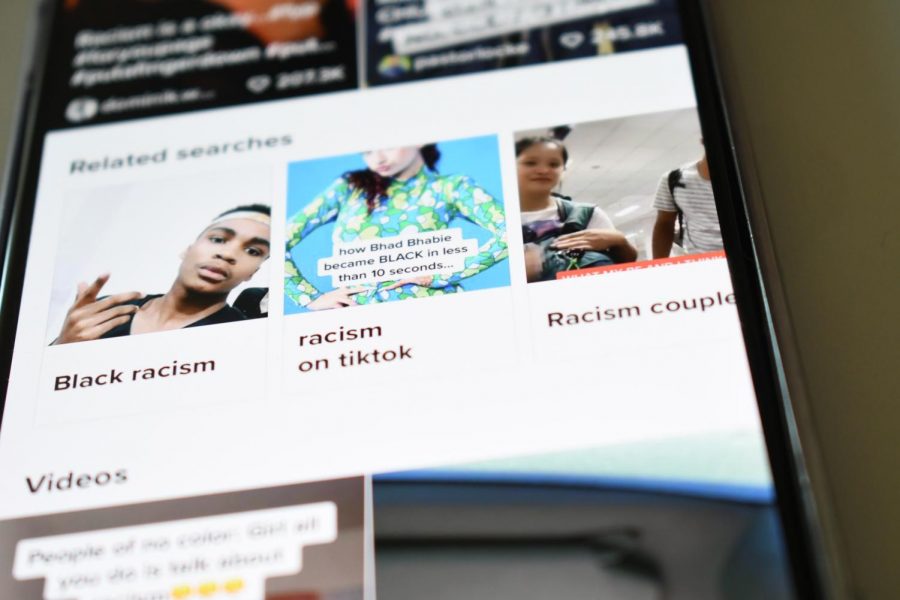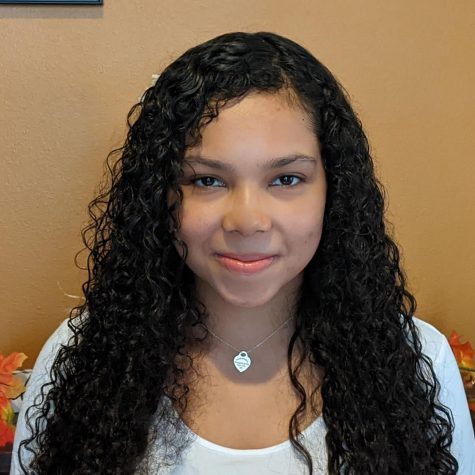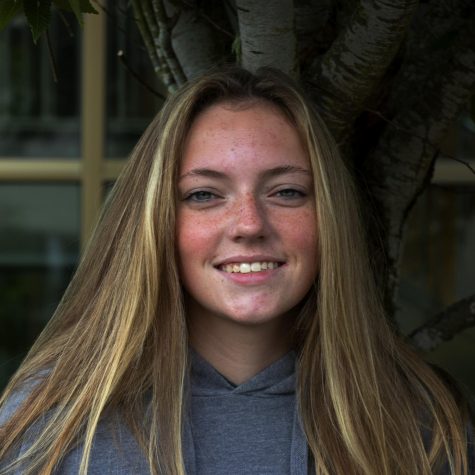The Damaging Bias Against Black Creators and Users on TikTok
May 29, 2020
In 2019, TikTok garnered massive popularity which has only risen through quarantine. However, the platform soon began making headlines for its increasingly controversial content. From viral racist challenges to accusations of a racially-biased algorithm built into the platform itself, it comes as no surprise that offensive and racist content has become a normal occurrence for the average user. Greater still, it has become evident that the platform has become increasingly toxic for its black users and content-creators in particular.
Due to TikTok’s popularity, it is hard for anyone to stay away from its content, even people who do not use the app at all. Junior Leila Rao, who only watches “TikTok a tiny amount,” has remembered watching several videos “that are offensive in the sense that they cross the line of basic human decency. Rao goes on to explain: “From what I have seen, I feel that African Americans seemed to get attacked the most.” Sophomore Keira Slippern, a regular user of the app, echoes this sentiment by noting: “I have noticed some racism against my race [with] people using the n-word to put down others or using that word because they think it’s just okay to throw it around like that.” This speaks to the normality of this type of content, as numerous non-black content-creators have been exposed for saying the n-word. Most of them have been able to maintain a level of their popularity through surface-level apologies.
Unfortunately, the anti-blackness expands far past that. Seemingly harmless challenges/dances will morph into outright racism. Two high school seniors from Georgia posted themselves using “derogatory ‘ingredients’ like not having a father and stealing to make black people while using the N-word.” This blows into fetishization as “white users [are] posting pictures with black men calling it the ‘snow bunny challenge.’” It has become harder for black users to believe in the content-creators who claim solidarity or use their platform to supposedly educate others as they often end up being exposed for their problematic pasts.
Senior Marvin Sabas explains how the platform’s superficial culture adds fuel to the fire: “Even now, there have been Tik Tok videos of people doing skits in which they react to another user and say something about their features. From a light hearted trend of playful roasting and bashing, it [turns] into roasts about stereotypes.” The superficiality especially targets black people. Consistently, black creators will create dances or challenges that end up being taken and credited to their white counterparts. This is certainly not limited to TikTok, but it does give one insight into how “systemic racism works in the pop culture/social media context.” Virality on TikTok can lead to monetary opportunities and exposure, things that are too-easily snatched away from black creators.
Questions have arisen on whether or not TikTok has a racial bias built into its algorithm. In a series of tweets, a researcher at the University of California Berkeley, suggests that “if most popular influencers are, say, blond, it will be easier for a blond to get followers than for a member of an underrepresented minority. And the loop goes on…” Considering that the most popular group of collaborative content creators on the app, The Hype House, has received considerable backlash for its lack of diversity, there seems to be a chronic racial-bias within the app.
In terms of solutions, it can seem quite hopeless. Sophomore Jade Redmond notes that one should ask themselves: “Do you see a world where equality is true?” before blindly grasping for solutions. With that in mind, Slippern encourages continued conversation as “educating people about these things [can show] what they really mean and do to people.” It can be mentally taxing for those who are on the receiving end of this hateful content, but Sabas suggests that, if nothing else, “report, and carry on.”





Sydney Hancock • Jun 17, 2020 at 3:26 pm
Thank you for touching on this subject. This is definitely something I, and a ton of other people see and it’s a great thing to bring awareness on.